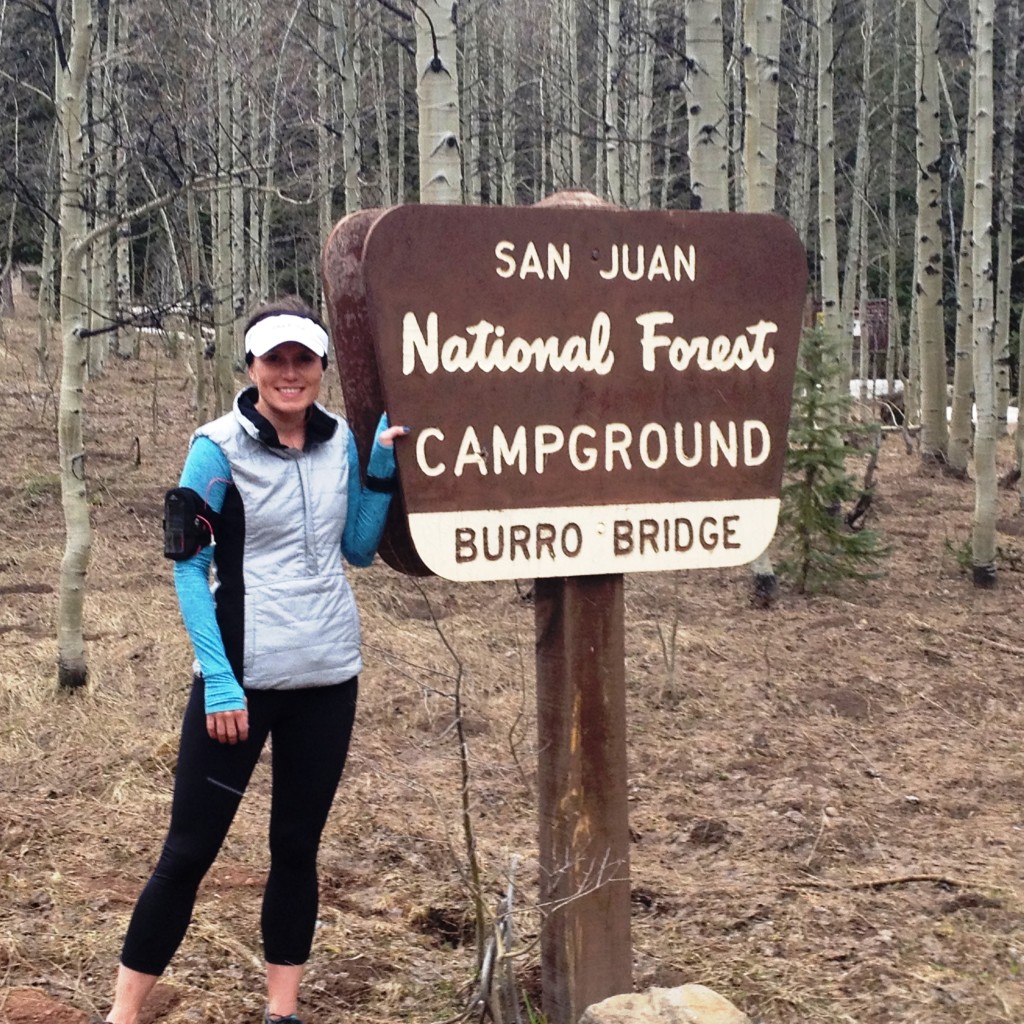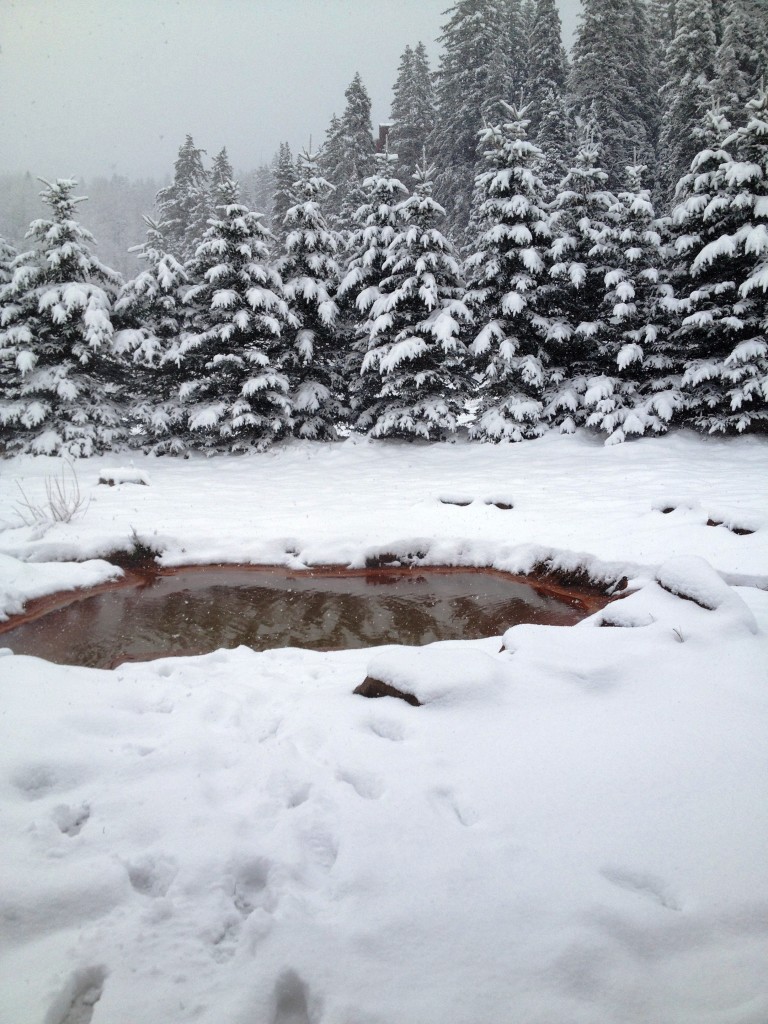Running at High Altitude
There are 3 factors that have the biggest impact on our performance as athletes. The first 2 are heat and cold, which most of us are familiar with and have learned to adapt to running through hot summers and cold winters. The third, however, is something I got to experience first hand this weekend: running at high altitude.
Performance can decrease significantly at high altitude due to a lack of oxygen available to work at higher altitudes. Although prolonged exposure to high altitude will help improve our exercise tolerance over time, it typically takes at least 2 weeks for such changes to occur, and it is entirely possible to experience aerobic deconditioning with extended stays at high altitude.
A common rule of thumb is that we will experience a 1 to 2 percent decline in performance for every 100-meter rise above 1,500 meters (or about 4,900 feet).
An Elevation Revelation
During the past 2 weeks, I’ve spent a lot of time out west in both Utah and Colorado for vacation. On Saturday, Mr. rUnladylike and I decided to go for a short run to test the science out. We were staying at a place that’s 8,800 feet (2,682 meters) above sea level and were running to a point just more than 9,000 feet (2,743 meters), including a 500-foot total ascent during the entire run with hills.

The verdict? It was like running with cellophane wrapped around our lungs. It was the hardest 4 miles I’ve run in as long as I can remember. We did it, but it felt like the last 4 miles of a marathon instead of a nice 4-mile morning run. Our splits were 9:42, 10:10, 8:35 and 8:58. (Can you guess where the downhill sections were?) We even stopped and walked at the end of the first mile to catch our breath. According to the equation above, at 9,000 feet (2,743 meters) we would have lost between 12 to 24 percent of our typical performance at sea level. It certainly felt that way.

I also took my heart rate several times throughout the weekend. My resting heart rate is typically around 52 beats per minute. Here in Colorado at nearly 9,000 feet it was around 58 to 60. After sitting in the hot springs and having a beer, my heart rate was at 74! The level of effort required to do some of the most basic things like carrying luggage, jogging through the snow to get inside, etc. were exponentially more taxing.

The bottom line is that if you’re traveling to a place that is higher than 1,500 meters above sea level, you should expect a decrease in your performance. Here are a few tips to keep in mind for running at high altitude:
- Stay hydrated! In drier conditions and at high altitude, dehydration occurs more rapidly. Relative humidity falls during ascent, which combined with increased breathing rate can cause significant water loss to occur from normally moist respiratory passages. Drink lots of water! Alcohol will also contribute to dehydration and will affect you more quickly. Be cautious of your alcohol intake at high altitudes and drink more water!
- Embrace running slow(er). Let’s face it. Running at high altitude will feel significantly harder than running at or near sea level, and it will take several weeks for your body to begin to adjust. Slow your pace. Take a walk break if/and when needed. Don’t worry about your time. It isn’t going to be the same as it would be at sea level.
- Consider altitude when selecting races. Be mindful that it takes time to adapt to running at high altitude and to improving your exercise conditioning in high altitude areas. If you aren’t used to running at high altitude, a race in Colorado probably isn’t your best target race for a PR.
- Understand the science. There are several necessary adaptations that must occur for us to more effectively run at high altitude. These include an increase in the oxygen-carrying capacity of our blood, the density of our blood supply to and within our muscles, the oxygen-carrying capacity of our muscles and our respiratory rate. As we spend more time in high altitudes, we can expect improvements with these functions.
All of the information about running at high altitude referenced in this article was obtained from the North American Academy of Sport Fitness Professionals, the organization in which I have received my marathon coaching certification.
How do you feel when running at high altitude? If you live in an area that is at high altitude, do you notice increases in performance when you are running or racing at sea level?



Comments
I’ve never tried running at high altitude before. It’s iteresting how much a decrease in oxygen can affect performance
Thanks for sharing the science Jesica. 🙂 I’ll do the math for my upcoming sky running races.
The Silverton race starts @ 9,000 ft and goes up above tree line to 13,000. Will be interesting.
this is part of the reason i’ve dreaded my western states!! add asthma to the already hard conditions and it will not be so easy for me. I know that going into though and expect slower times. Interesting to know the stats, though! thanks for sharing!
I’ve ran at elevation quite a bit while racing the states and I learned (for me) if I got out slower the first 1-2 miles, my body doesn’t feel affected from oxygen, whereas if I got out normal pace I can never seem to catch my breath.
Interesting, Lisa. Thanks for the advice. I’ll definitely have to try that. My first two miles were slow, but perhaps not slow enough. xo
Absolutely! I notice a huge difference when I run/race at sea level. I live in Denver (5280′) and running at sea level is so much easier. However, I’ve also raced in some trail races where the elevation creeps up to over 10k feet, and it is a struggle.
I just slow down and walk the uphills.
Running at elevation is no joke. So hard! I have done a couple of races at a higher altitude. I try and not think about it. Just slow down and not worry about it. Your breathing is just so much more taxing. Like you said too: it is hard just going up the stairs!!
I live in Mammoth Lakes, California and the elevation of my home is at 8200 feet. I have been an avid runner all my adult life and after living here over a year, I still am not completely comfy with the altitude.
What bothers me is that I’ve always run at a 9:00 minute a mile pace. When I do intervals, of course I run faster, but my general pace is 9 mins. per mile. Here at 8200 feet I’ve been forced to slow down to a 9:40 pace, usually, and I just don’t enjoy running as much when it’s slow. This morning it was very hot and my pace for my 7 mile run was 10:40. I have never been this slow!
So I can state with authority that high altitude will slow down a recreational runner. Elite runners are another animal, of course.
I live near Boulder CO at about 5800, and I took a trip to Kansas City. I’m a recreational runner, I’ve only been at it for about 6 months (after not really running for several years). My normal pace here at home is around 11:10 min/mile. I was so checked when I ran in KC and did just over 8 m/m. Wow. I didn’t even feel like I was pushing it. Now I feel like entering a sea level 10k somewhere! I was supposed to do a Mother’s Day 9k in boulder, but it was canceled due to weather and flooding.
Loved your article. Thanks for the submission.
I literally just got back from my first run after moving to Colorado Springs, CO about two and a half weeks ago.
I’m dying! ????
My lungs are burning, I feel mucus pooling in the back of my throat, I’m coughing and my legs are beat.
Let me go back and say I am not exercising nearly as often as I should, and I am partaking in the lavish craft beer scene Colorado has to offer more than I should-probably… However, it feels good. This run was what I needed!
I am going to start training for a Tough Mudder in Snowmass, CO at about 8,000 feet. If you’re not familiar, these races are 10-12 miles with approximately 20 military Special Forces created obstacles. After reading in your article that breaks are good, more water is good… What are some other things you would/could recommend? Thanks in advance and may the wind always be in your hair!
-Scott
Hi Scott! Thanks for sharing your story and good luck with your training. All my tips are included in this article, but I would probably just suggest slowing your pace until you acclimate. It can be hard mentally to see a slower time on the watch, but with the extra effort we have to exert, it is of course totally normal. I hope your Tough Mudder is a success!
I feel so much better after reading this article! I moved to Woodland Park, CO (8500 ft.) from Illinois three months ago. While I haven’t been as avid about my “running” recently, I was completely discouraged that 1.5 miles was so challenging. At 52 y/o, the elevation and inclines have gotten the best of me. I used to be able to do 3 miles easily. I slowed it down this morning and did much better, but my lungs give out way before my legs. I’ll stick with it. I will get back to my 3 miles eventually.
Keep up the strong determination! I know you will and can do it! xo
Just got to Utah (will be here for about a month), and where I am at is around 4860 feet. I am from Las Vegas is about 2178 feet. I have been here for about a week, running gets a little easier the 1st mile, but the second mile sucks. So reading above, you basically say if I slow down my 1st mile, it shouldn’t be so bad? I am only running about 3-4 days a week (when time permits). Plus, it is always at least 5-20 mph winds in the afternoon. Question is, if I continue running throughout the next 3 weeks I am here, how will it be running in Las Vegas? Do I need to allow a couple days acclimatizing when I return home, or would I be okay to go do a 5K at optimal performance? I normally run average of a 8 m/m pace back home. In Utah, I am running almost a 10 m/m. Just want to know if it would be wise to do a run a week after I return home. Thanks!
Hi Kris, Running at higher elevations is so tough! You should be fine going from high elevation back to what you are used to without a problem. It is the other way that is tough. Best of luck during your time in Utah. I love running in Utah, particularly in Snow Canyon near the St. George area. Enjoy your time there and happy running.
I’ve just started running for the first time. But I’m in Mexico City. It’s 2400m above sea level. I’ve managed over the last three weeks to reach 8 laps of a 886m circuit. That’s 7.1km. My aim is to run 10km by end of August. Question is, when I get back down to sea level, will doing 10km feel really much easier? How much easier, do you think? Anyone got any ideas? Thanks.
Hi Al! Thanks so much for reading and commenting and good luck with your training. Every runner is different, but most people say they do feel that it is easier to run back at sea level. It is one of the reasons all the elites train at altitude to strengthen their fitness since we are exerting about 10 percent or more effort at altitude than we are at sea level. Of course weather is a factor. If you come back down and have to run in blazing heat or humidity, it may not feel all that much better, but you are building your fitness at altitude. Keep us posted on your experience!
Thanks. I’ll be going back down to very temperate temps. Even cold somedays. Looking fwd to seeing how I manage. Thank again, great site.